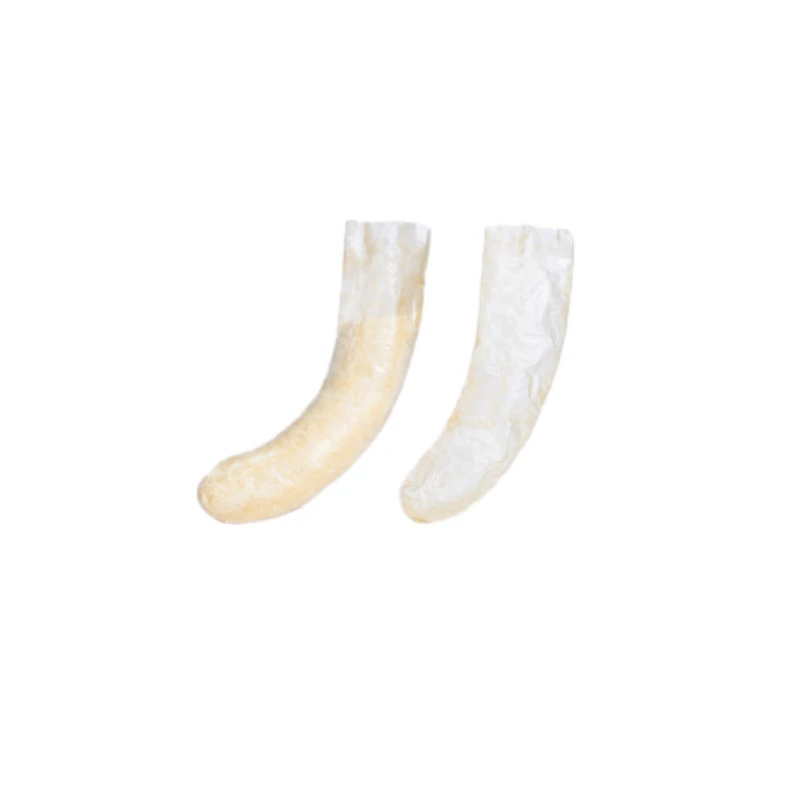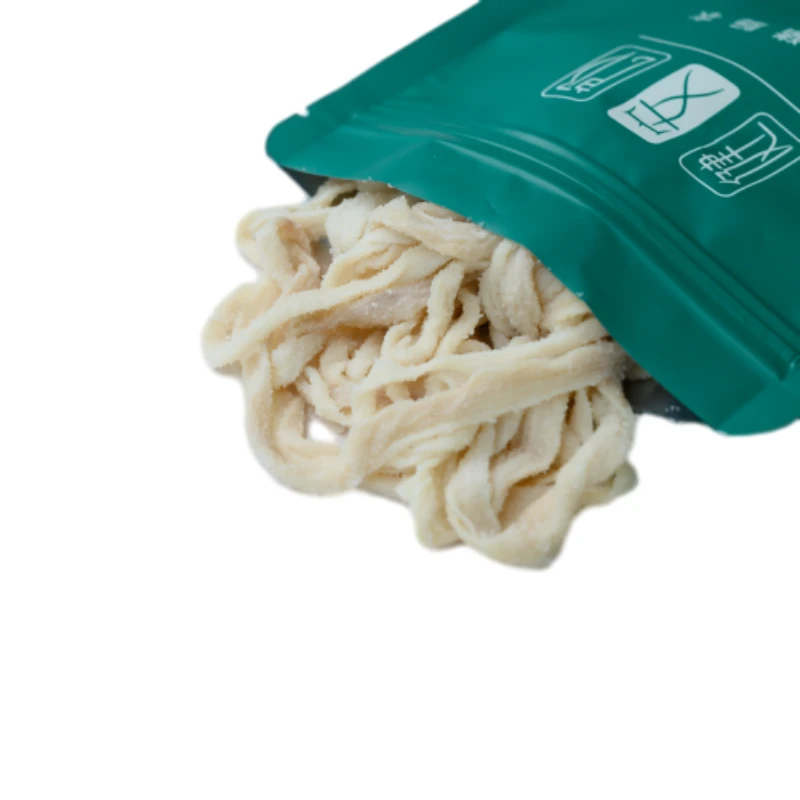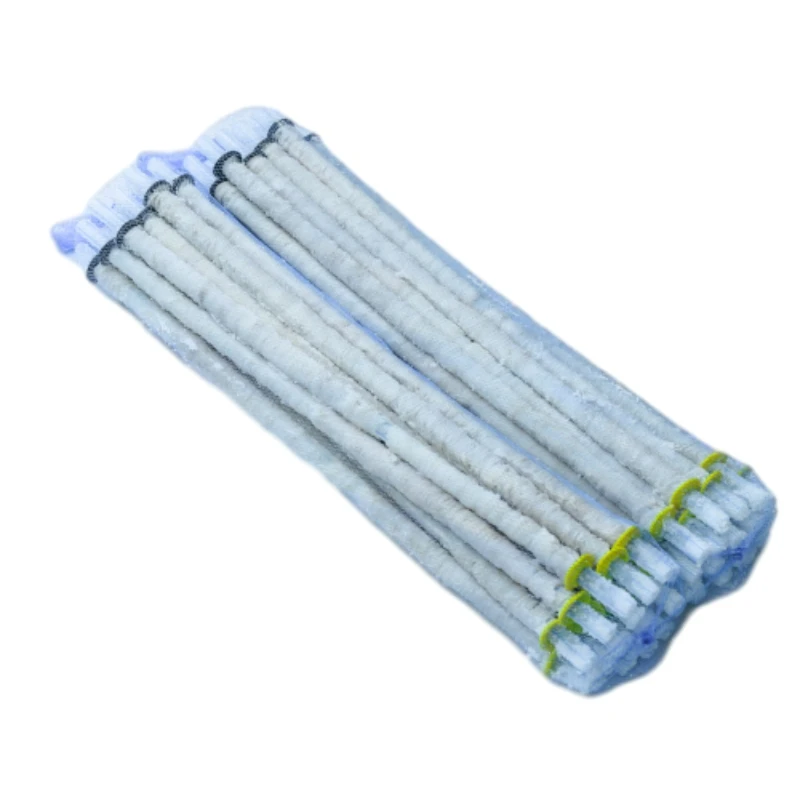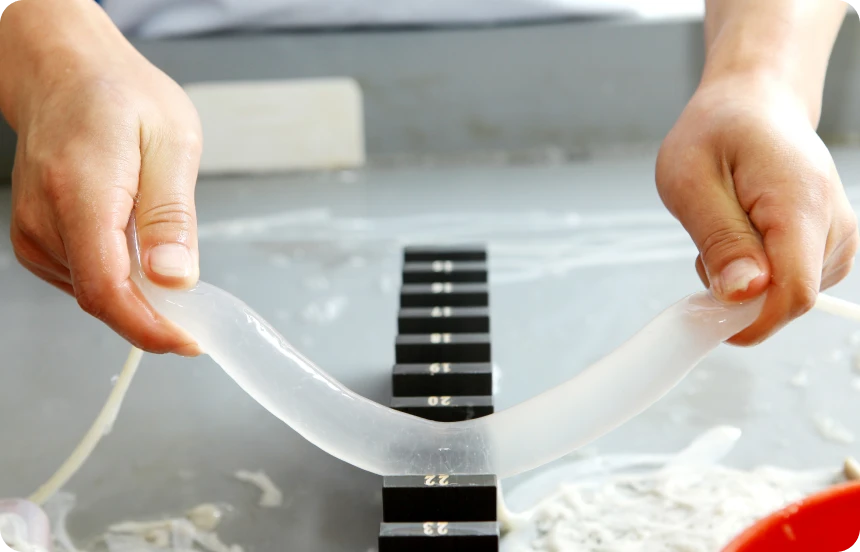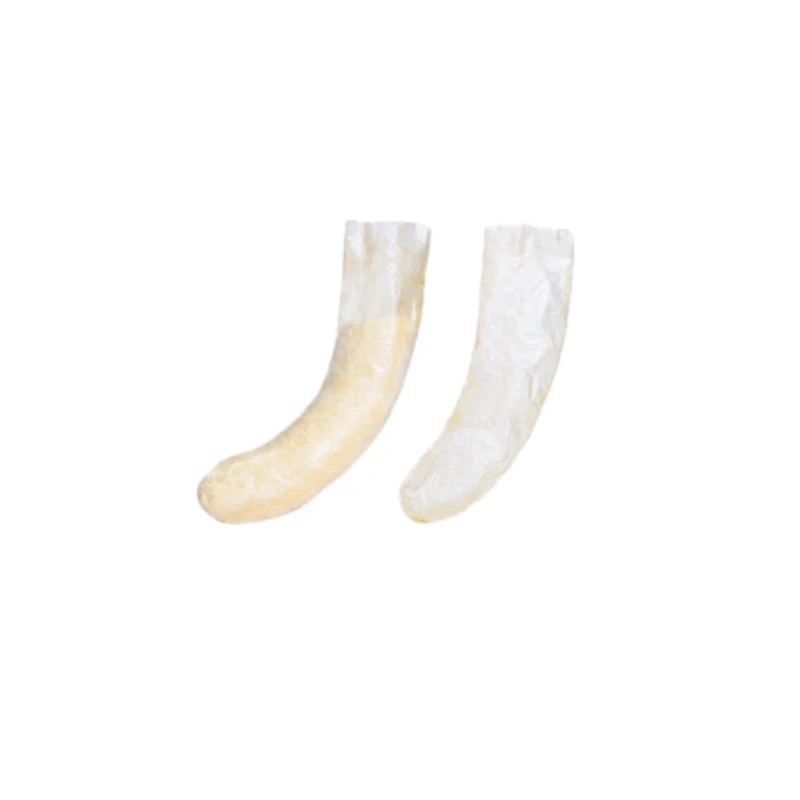Aug . 10, 2025 09:00
Navigating the Global Market for Natural Hog Casings
In the dynamic and ever-evolving food processing industry, the demand for high-quality sausage casings remains paramount. Among the various options available, natural hog casings for sale stand out as a preferred choice for producers seeking unparalleled texture, snap, and flavor permeability in their products. These natural casings, derived from the sub-mucosa layer of hog intestines, offer a traditional and authentic appeal that synthetic alternatives often struggle to replicate. The market is driven by increasing consumer preference for natural, wholesome ingredients, coupled with the global expansion of meat processing capabilities, particularly in regions with strong culinary traditions centered around sausage production. Understanding the intricacies of sourcing, processing, and application of these casings is crucial for businesses aiming to maintain competitive edge and deliver superior products. The global natural sausage casings market was valued at approximately USD 2.3 billion in 2022 and is projected to reach USD 3.5 billion by 2030, growing at a CAGR of 5.5% from 2023 to 2030, according to industry reports. This growth is primarily fueled by rising disposable incomes, urbanization, and a consistent demand for processed meat products globally.
The demand for natural hog casings is not merely about tradition; it is deeply rooted in their functional superiority. Their natural permeability allows for effective smoke absorption and flavor infusion, critical elements in producing high-quality sausages with distinct characteristics. Furthermore, the unique "bite" or "snap" provided by a natural casing is a sensory experience highly valued by consumers, contributing significantly to product differentiation in a crowded market. Producers looking for hog casing for sale must consider not only the cost but also the consistency, strength, and microbial safety of the product. Technological advancements in processing and preservation techniques have also contributed to the wider availability and improved shelf life of these delicate natural products, making them accessible to a broader range of manufacturers worldwide. From small-batch artisanal producers to large-scale industrial operations, the foundational role of quality natural casings remains undisputed. The integrity of the casing directly impacts the final product's appeal, from its appearance to its texture and flavor profile, making the selection of a reliable supplier of pork casing a critical strategic decision.
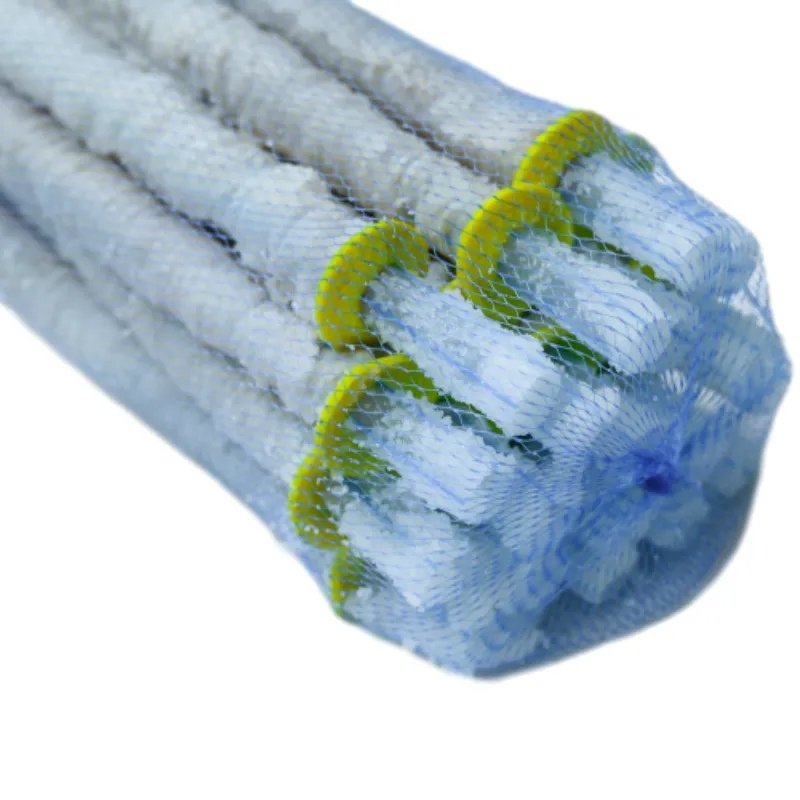
The Anatomy and Unique Properties of Salted Hog Casings
Natural hog casings are derived from the small intestine of healthy hogs, specifically the sub-mucosa layer, which is primarily composed of collagen. This collagenous structure is what imparts the unique properties highly valued in sausage making. Unlike synthetic casings, which are extruded from various materials like collagen, cellulose, or plastics, natural casings retain the inherent structural integrity and biological characteristics of the animal's intestine. This includes their natural elasticity, allowing them to expand and contract with the sausage filling during processing (e.g., smoking, cooking) and cooling, which helps prevent fat separation and maintains a desirable product shape. The permeable nature of these casings is another critical attribute; it facilitates the absorption of smoke flavors and allows for natural drying and fermentation processes essential for certain types of sausages, such as dry-cured varieties. When considering natural hog casings for sale, understanding these intrinsic properties is vital for achieving the desired end product.
The sensory experience delivered by pork casing is unrivaled. When cooked, natural casings provide a characteristic "snap" or "bite" that is highly sought after by consumers. This unique textural quality, often referred to as "succulence," is a direct result of the collagen's reaction to heat and its interaction with the sausage emulsion. Furthermore, their irregular, artisanal appearance appeals to consumers who prioritize traditional and authentic food products. This visual appeal contributes to the premium perception of sausages encased in natural casings. The caliber, or diameter, of hog casing for sale is a key specification, ranging typically from 28mm to 45mm, catering to a wide array of sausage types, from breakfast links to large fresh sausages. The length of strands, strength, and freedom from defects (e.g., holes, weak spots) are also critical parameters that determine their suitability for high-speed automated sausage stuffing operations. Processors must ensure that their chosen casings meet stringent quality criteria to minimize breakage and optimize production efficiency, guaranteeing a consistent, high-quality finished product.
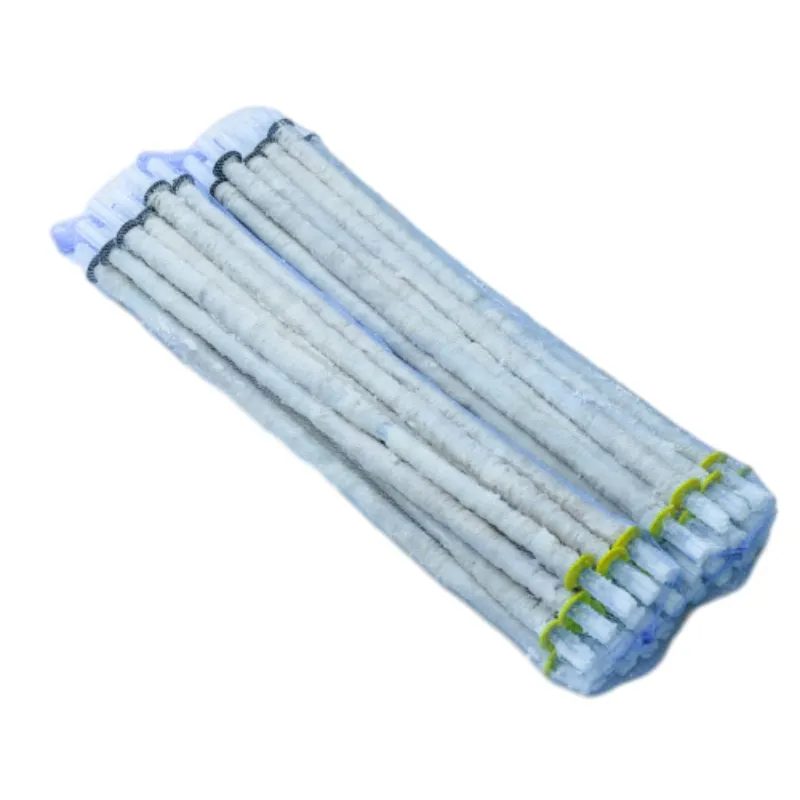
The Meticulous Process: From Raw Material to Salted Hog Casings
The production of natural hog casings for sale is a highly specialized and intricate multi-stage process that demands rigorous adherence to hygiene, quality control, and traditional craftsmanship, combined with modern technological precision. It begins immediately after the animal is processed, where the small intestines are carefully harvested. The initial steps involve thorough cleaning to remove all intestinal contents and extraneous tissues. This crucial phase is performed with meticulous care to prevent microbial contamination and preserve the delicate collagen structure. Following the initial cleaning, the intestines undergo several rounds of flushing and degreasing. This involves using specialized machinery and techniques to remove mucosal and serosal layers, leaving only the desired sub-mucosa layer, which will form the final casing. This stage is critical for ensuring the purity and strength of the casing. The process is labor-intensive and requires skilled operators to manually inspect and prepare each casing, ensuring that it meets strict quality benchmarks.
After cleaning and preparation, the casings are sorted by caliber (diameter) and graded based on quality characteristics such as strength, transparency, and freedom from defects. This sorting ensures consistency for different sausage applications. For example, larger calibers of pork casing for sausage are suitable for products like bratwurst or Italian sausage, while smaller ones might be used for frankfurters. The final, and arguably most critical, stage for salted hog casings is the preservation process, primarily salting. Casings are thoroughly salted with food-grade salt, which acts as a natural dehydrating agent and inhibits microbial growth. This process extracts moisture from the casing walls, extending their shelf life significantly without requiring refrigeration until opened. The quality of salt and the salting technique directly impact the casing's integrity and subsequent performance. Post-salting, the casings are typically packed in nets or bundles, then into barrels or tubs with additional brine, ready for distribution. Throughout this entire manufacturing chain, stringent inspection standards, often including HACCP (Hazard Analysis and Critical Control Points) and ISO certifications, are followed to guarantee food safety and product consistency, ensuring that every batch of hog casing for sale meets global regulatory and industry expectations. The typical shelf life for properly salted casings stored correctly is 12-24 months.
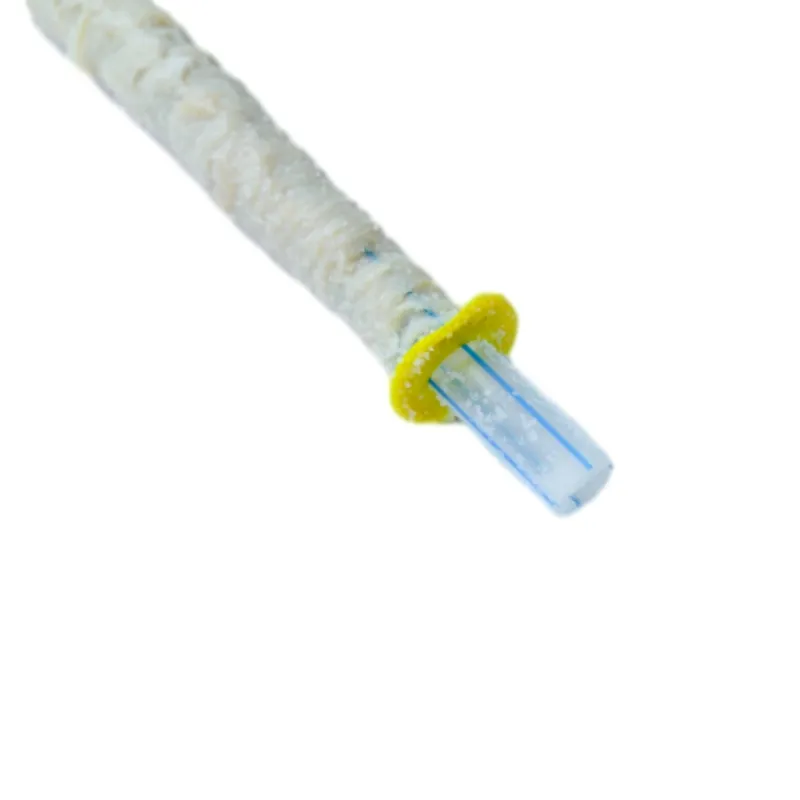
Technical Specifications & Rigorous Quality Assurance for Hog Casings
When sourcing natural hog casings for sale, detailed technical specifications and robust quality assurance protocols are paramount for B2B buyers. The efficacy and consistency of sausage production depend heavily on the precise characteristics of the casings. Key parameters include caliber uniformity, strength, elasticity, and microbial purity. Caliber, measured in millimeters, dictates the final diameter of the sausage and must be consistent within a batch to ensure uniform cooking and packaging. For instance, a common range for fresh sausages might be 32/35mm or 35/38mm. Strength and elasticity are critical for minimizing breakage during stuffing, especially in high-speed automated lines. A weak casing can lead to significant production losses and increased downtime. Permeability is another vital characteristic, allowing for optimal smoke penetration and moisture loss during drying or smoking, which contributes to the desired flavor and texture of fermented or cured sausages. Suppliers often provide technical data sheets detailing these parameters, which should align with international food safety standards such as ISO 22000, HACCP, and specific national regulations like FDA (Food and Drug Administration) requirements in the US, or EU food safety directives.
Quality assurance for pork casing extends beyond initial visual and tactile inspections. It involves a comprehensive system of checks from raw material sourcing to final packaging. Reputable manufacturers perform regular laboratory tests to verify microbiological counts (e.g., total plate count, coliforms, salmonella), salt content, moisture levels, and bursting strength. Bursting strength tests, for example, simulate the pressure exerted during stuffing, ensuring the casings can withstand industrial processing. Furthermore, ethical sourcing practices are increasingly important, with traceability systems in place to track the origin of raw materials, ensuring animal welfare and sustainable practices. Manufacturers of high-quality natural hog casings often invest in advanced processing equipment and sterile environments to minimize contamination risks. The goal is to provide a product that not only meets functional requirements but also adheres to the highest global food safety and quality standards, building trust and reliability with international clientele.
Typical Technical Specifications for Salted Hog Casings
| Parameter | Description | Typical Range/Value | Testing Standard |
|---|---|---|---|
| Caliber (Diameter) | The internal diameter of the casing when stuffed, determining sausage size. | 28mm - 45mm (in 3mm increments, e.g., 28/32, 32/35, 35/38, 38/42, 42/45) | Visual/Gauge Measurement |
| Length per Hank | Standardized length bundles (hanks) for processing efficiency. | 91.44 meters (100 yards) per hank, or 90 meters (approx. 300 ft) | Manual Measurement |
| Wall Thickness | Affects chewiness and strength. | ~0.1-0.2 mm (wet) | Micrometer (Lab Test) |
| Bursting Strength | Pressure casing can withstand before rupturing. | Typically > 0.5 Bar (varies by caliber) | Pressure Test Apparatus |
| Salt Content | Percentage of salt used for preservation. | Typically 20-25% (by weight) | Titration / Chemical Analysis |
| Microbial Count | Absence of pathogenic bacteria (Salmonella, E.coli, etc.) and low general microbial load. | Conforms to international food safety standards (e.g., | Plate Count / PCR (Lab Test) |
| Defect Rate | Percentage of casings with holes, weak spots, or other imperfections. | Typically | Visual Inspection / Production Yield Data |
| pH Level | Indicates freshness and proper preservation. | 5.0 - 7.0 (when rehydrated) | pH Meter |
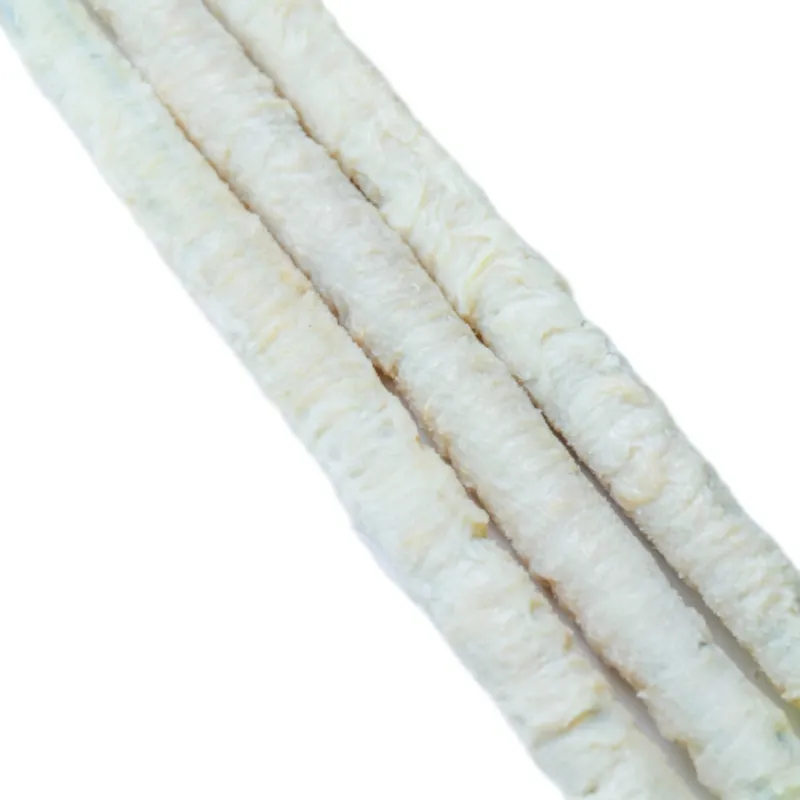
Diverse Applications & Industry Impact of Natural Hog Casings
The versatility of natural hog casings makes them indispensable across a wide spectrum of sausage types and culinary traditions globally. Their unique properties, including elasticity, permeability, and characteristic "snap," are crucial for specific sausage profiles. For fresh sausages like Italian sausage, bratwurst, boudin, or breakfast links, the casing's ability to stretch without breaking during stuffing and its tender bite after cooking are highly valued. The natural appearance also enhances consumer appeal, signaling an authentic, handcrafted product. In the realm of smoked sausages, such as frankfurters, hot dogs, and some forms of kielbasa, the permeability of pork casing is critical. It allows smoke to penetrate evenly, imparting desired flavors and colors, and also permits gradual moisture loss during the smoking process, contributing to texture and preservation. For producers seeking premium natural hog casings for sale, understanding the end application is key to selecting the appropriate caliber and quality.
Beyond fresh and smoked varieties, natural hog casings are fundamental to the production of various fermented and dry-cured sausages like salami, pepperoni, and chorizo. In these applications, the casing acts as a breathable membrane, facilitating the precise moisture loss and fermentation processes essential for developing complex flavors and achieving the desired shelf-stable state. The collagen structure interacts with the meat emulsion, contributing to the characteristic texture and mouthfeel of these artisanal products. The specific caliber of hog casing for sale is often dictated by regional sausage traditions; for example, smaller calibers for breakfast sausages, medium for grilling sausages, and larger calibers for artisanal salami or liverwurst. The casings' natural robustness makes them suitable for both small-batch artisanal production and large-scale automated stuffing lines, provided they meet rigorous strength and consistency standards. The inherent advantages of natural casings – superior taste, texture, appearance, and traditional appeal – solidify their irreplaceable role in the global meat processing industry, making them a strategic component for any business focused on delivering high-quality, authentic sausage products.
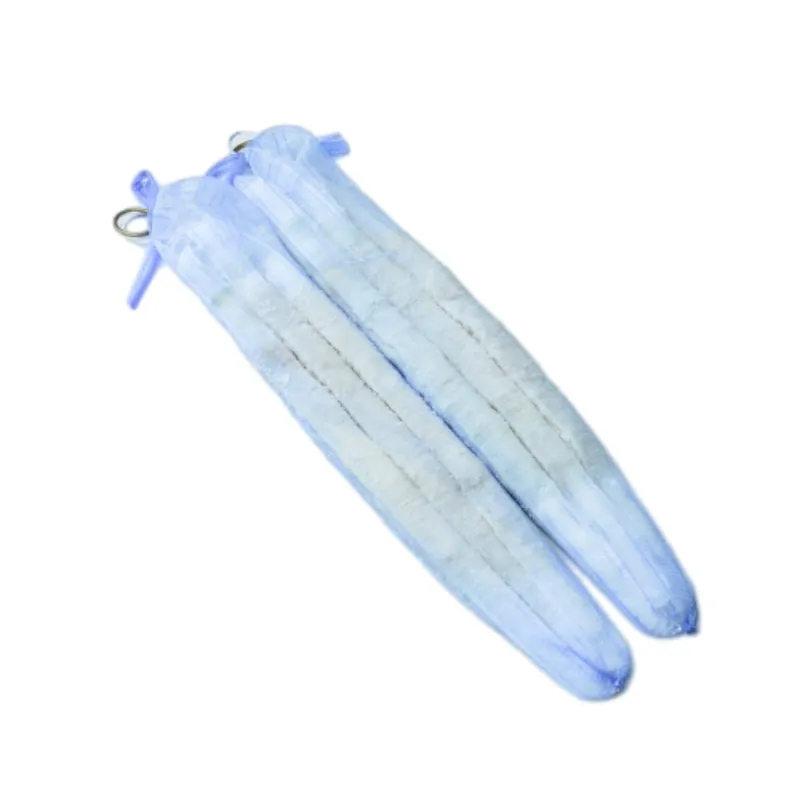
Comparative Analysis: Choosing the Right Supplier for Natural Hog Casings
Selecting the optimal supplier for natural hog casings for sale is a critical decision that significantly impacts a sausage producer's operational efficiency, product quality, and ultimately, market reputation. The landscape of suppliers is diverse, ranging from large international corporations to specialized regional distributors. Key factors to consider during supplier comparison extend beyond just price, encompassing product consistency, adherence to quality standards, reliability of supply, and customer support. A reliable supplier provides consistent caliber, strength, and overall quality across batches, which is essential for maintaining consistent production throughput and minimizing waste on automated stuffing lines. Discrepancies in casing quality can lead to frequent line stoppages, product rejects, and increased labor costs. Furthermore, certifications such as ISO 22000, HACCP, BRC (British Retail Consortium) Global Standards for Food Safety, and specific governmental health agency approvals (e.g., USDA, FDA for imports) are non-negotiable indicators of a supplier's commitment to food safety and quality management.
Beyond certifications, consider the supplier's experience and specialization in pork casing. Manufacturers with long-standing expertise often have deeply integrated supply chains, allowing for better control over raw material quality and processing protocols. Their technical support capabilities are also crucial; the ability to provide expert guidance on casing preparation, stuffing techniques, and troubleshooting can be invaluable, especially for optimizing high-speed production. Furthermore, assessing a supplier's inventory management and logistics capabilities is important. Timely delivery and adequate stock levels prevent production delays. Some suppliers offer tailored solutions, such as specific hank lengths, pre-flushed or pre-tubed casings, or even customized packaging to streamline a client's specific operations. Requesting samples for testing, visiting production facilities (if feasible), and speaking to existing clients can provide invaluable insights into a supplier's true capabilities and reliability. Ultimately, partnering with a supplier that demonstrates a deep understanding of natural hog casings and a steadfast commitment to quality and customer service will foster a robust and sustainable supply chain for any serious sausage producer.
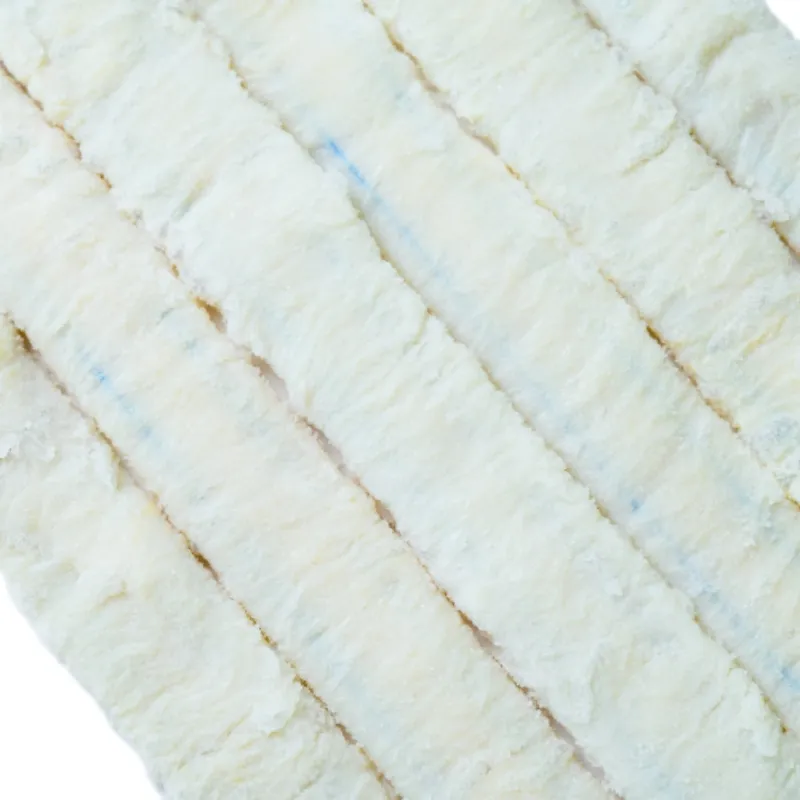
Customization and Bespoke Solutions for Natural Hog Casings
In a highly competitive market, the ability to offer customized and bespoke solutions for natural hog casings for sale can be a significant differentiator for suppliers and a considerable advantage for sausage manufacturers. While standard hanks of pork casing cater to general needs, specialized requirements often arise due to unique product formulations, specific processing equipment, or a desire for distinct brand differentiation. Customization can manifest in several ways, beginning with precise caliber selection and grading beyond the typical ranges. For instance, a producer might require a very narrow caliber variance for high-speed automatic linking machines to ensure optimal output and minimal breakage. Suppliers with advanced sorting and calibration technologies can meet such stringent demands, providing batches with exceptionally uniform diameters. Moreover, the length of casing hanks can be customized to fit specific production runs or stuffing equipment, reducing waste and improving operational flow.
Further customization options include specialized preparation of natural hog casings. This can involve pre-flushing casings to reduce preparation time at the client's facility, or even pre-tubing them onto hard or soft tubes, which significantly streamlines the loading process onto stuffing nozzles, particularly beneficial for large-scale operations using automated stuffers. Some clients may also require specific levels of salt content or specific packaging formats (e.g., vacuum-sealed pouches for smaller batches, bulk barrels for industrial use) to align with their storage and handling protocols. The capacity for a supplier to engage in detailed consultation, understand a client's specific machinery and product goals, and then tailor the hog casing for sale offering accordingly demonstrates a high level of expertise and customer commitment. This collaborative approach fosters strong B2B relationships, ensuring that the casings supplied are perfectly optimized for the client's unique manufacturing environment, thereby maximizing efficiency, minimizing waste, and ultimately contributing to a superior final sausage product that stands out in the marketplace.
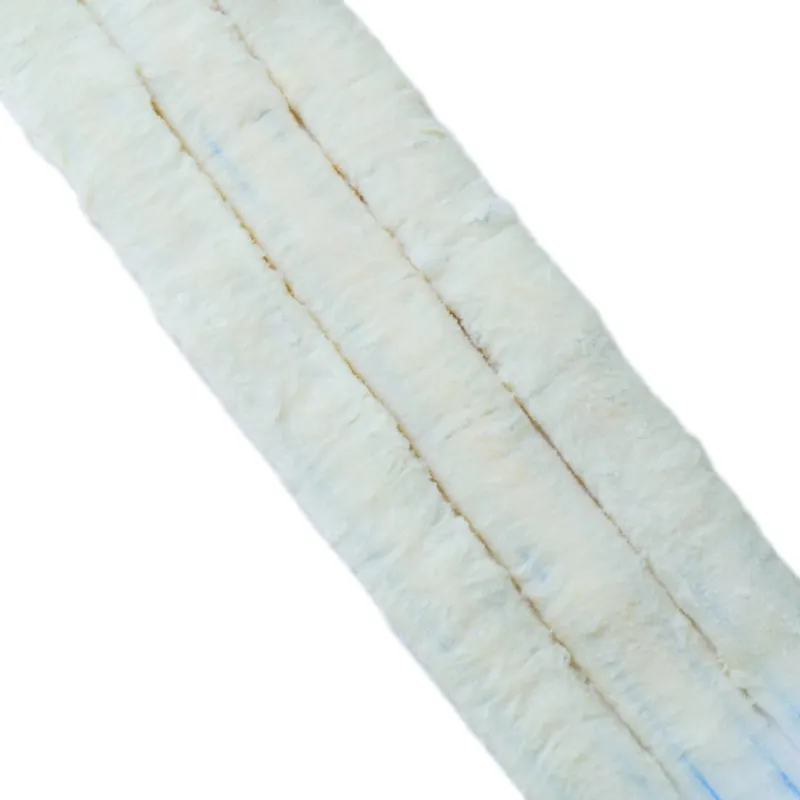
Real-World Impact: Application Case Studies for Natural Hog Casings
The tangible benefits of using high-quality natural hog casings for sale are best illustrated through real-world application case studies, highlighting improvements in product quality, operational efficiency, and market perception. Consider a regional artisanal sausage producer specializing in gourmet bratwurst. Previously, they struggled with inconsistent casing strength from a budget supplier, leading to frequent bursting during the stuffing process, resulting in significant product loss and wasted labor hours. Upon switching to a premium supplier of natural hog casings that provided consistently strong and elastic casings, their stuffing efficiency increased by 15%, and product waste due to casing breakage dropped by over 70%. This not only reduced costs but also allowed them to increase production volume without additional labor, meeting growing demand for their popular bratwurst, which also gained a more uniform and appealing appearance, further boosting sales.
Another compelling example involves a large industrial meat processor producing millions of hot dogs annually. They had traditionally relied on synthetic collagen casings for high-speed production. However, market research revealed a strong consumer preference for the "snap" and natural texture associated with pork casing. Implementing a strategic shift, they partnered with a supplier offering pre-tubed natural hog casings. While the initial cost per meter of natural casing was slightly higher, the pre-tubing significantly reduced their labor costs for preparing casings and improved the speed of loading onto automated stuffers, almost matching the throughput of synthetic casings. More importantly, the sensory improvement in their hot dogs, particularly the distinctive "snap," resonated powerfully with consumers. Blind taste tests showed a preference for their newly reformulated hot dogs, leading to a 5% increase in market share within the first year and a premium pricing opportunity. This demonstrates that while perceived cost can be a barrier, the added value in terms of product quality and consumer appeal offered by top-tier hog casing for sale can translate into substantial competitive advantages and long-term profitability. These cases underscore that investing in superior natural casings is not merely an expense, but a strategic investment in product excellence and market leadership.
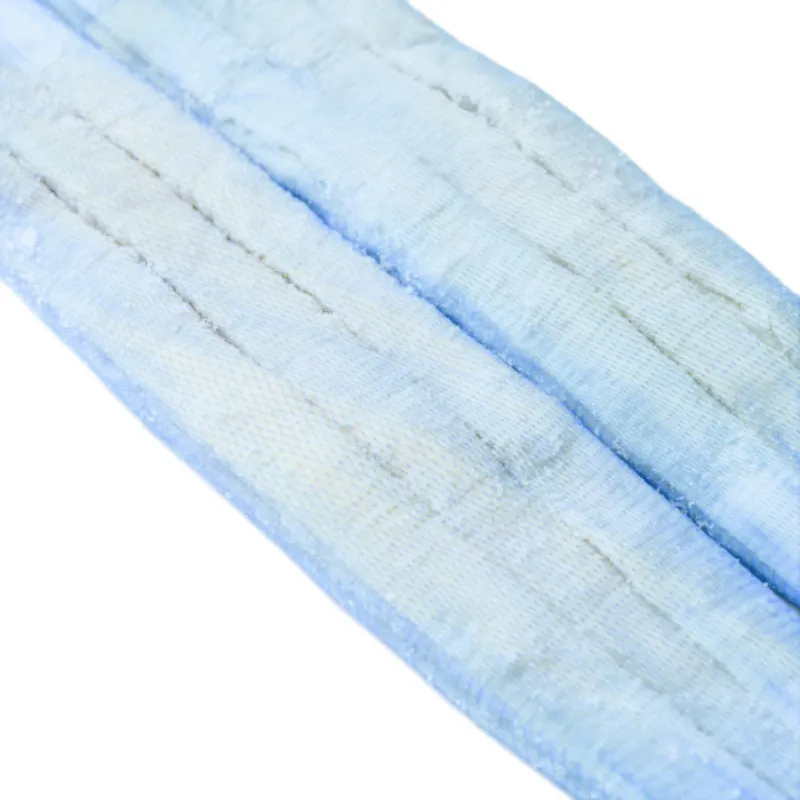
Frequently Asked Questions (FAQ) about Natural Hog Casings
Q1: What are natural hog casings, and what are they made of?
Natural hog casings are a traditional and highly valued sausage casing made from the sub-mucosa layer of the small intestine of hogs. This layer is primarily composed of collagen, a natural protein that provides the casing with its unique elasticity, strength, and permeability. Unlike synthetic casings, they are entirely natural and edible, imparting a superior texture and taste to sausages. For those seeking natural hog casings for sale, it's crucial to understand their biological origin and preparation.
Q2: How are natural hog casings processed and preserved?
The processing of natural hog casings involves several meticulous steps: initial harvesting and cleaning to remove intestinal contents, followed by degreasing and stripping to isolate the sub-mucosa layer. They are then thoroughly flushed, sorted by caliber, and finally preserved by salting. Food-grade salt is used to dehydrate the casings and inhibit microbial growth, ensuring a long shelf life. This salting process is essential for providing high-quality salted hog casings.
Q3: What are the key advantages of using natural hog casings over synthetic ones?
Natural pork casing offers several distinct advantages. They provide an unmatched "snap" or "bite" when cooked, superior tenderness, and excellent permeability for smoke absorption and flavor development (essential for smoked and cured sausages). Their natural, irregular appearance also appeals to consumers looking for artisanal products. They contribute to a more authentic and traditional sausage experience, which synthetic casings often cannot replicate.
Q4: How should natural hog casings be stored, and what is their typical shelf life?
Salted hog casing for sausage should be stored in a cool, dry place, ideally between 0°C and 10°C (32°F and 50°F), away from direct sunlight and extreme temperature fluctuations. They should remain in their original sealed packaging with salt. When stored correctly, their typical shelf life is 12 to 24 months. Once opened and rehydrated, unused portions should be re-salted and refrigerated.
Q5: What quality certifications should I look for in a natural hog casings supplier?
Reputable suppliers of natural hog casings for sale should possess internationally recognized food safety and quality certifications. These typically include HACCP (Hazard Analysis and Critical Control Points), ISO 22000 (Food Safety Management Systems), BRCGS (British Retail Consortium Global Standards), and compliance with specific national regulatory bodies like the FDA (for the US market) or EU food safety directives. These certifications ensure adherence to stringent hygiene, processing, and quality control standards.
Delivery, Customer Support, and Warranty for Your Hog Casings Supply
For B2B clients in the meat processing industry, the reliability of delivery and the robustness of customer support are as crucial as the product quality itself when securing natural hog casings for sale. Timely and consistent supply is paramount to maintaining uninterrupted production schedules and preventing costly downtime. Leading suppliers understand this imperative and typically offer flexible shipping options, including refrigerated or climate-controlled transport where necessary, to ensure the integrity of salted casings during transit. They often utilize advanced logistics planning and global distribution networks to facilitate efficient delivery to diverse international markets. Clear communication regarding order tracking, estimated delivery times, and proactive alerts for any potential delays are hallmarks of a dependable supply chain partner. A typical delivery cycle can range from 7-14 days for international shipments, depending on destination and customs procedures, but expedited options may be available for urgent requirements.
Beyond logistics, comprehensive customer support plays a pivotal role in fostering long-term partnerships for pork casing. This includes dedicated account managers who understand specific client needs, technical support teams capable of providing expert advice on casing preparation, stuffing techniques, and troubleshooting issues that may arise during production. Such support can significantly optimize a client's use of natural hog casings, reducing waste and improving product consistency. Furthermore, a strong warranty and clear return policy demonstrate a supplier's confidence in their product and commitment to client satisfaction. Reputable suppliers typically offer a guarantee on the quality and performance of their hog casing for sale, addressing any issues related to defects or non-conformity to specifications promptly and fairly. This commitment to after-sales support and quality assurance builds trust, ensuring that clients can rely on their chosen supplier not just for products, but for a complete, reliable, and supportive partnership in their sausage production endeavors.
Conclusion and Future Outlook for Natural Hog Casings
The market for natural hog casings for sale is robust and continues to demonstrate significant growth, driven by an enduring consumer preference for authentic, high-quality sausage products. As global demand for processed meats expands, especially in emerging markets, the unique attributes of natural casings – superior texture, excellent flavor permeability, and traditional appeal – ensure their irreplaceable role in the industry. Technological advancements in processing, sorting, and preservation continue to enhance the consistency and accessibility of these delicate products, making them suitable for both artisanal producers and high-volume industrial operations. The emphasis on stringent quality control, adherence to international food safety standards, and the ability to offer customized solutions are becoming increasingly critical factors in supplier selection. Businesses that prioritize the quality of their pork casing supply are better positioned to differentiate their products, enhance brand perception, and capture a larger share of the discerning consumer market.
Looking ahead, the future of natural hog casings will likely see continued innovation in areas such as sustainability and ethical sourcing, with increased transparency in supply chains. As consumers become more conscious about the origin and production methods of their food, suppliers demonstrating strong commitments to animal welfare and environmental responsibility will gain a competitive edge. Furthermore, advancements in pre-tubing technologies and other forms of pre-preparation will continue to streamline the usage of hog casing for sausage in automated production environments, bridging the efficiency gap with synthetic alternatives while retaining the unparalleled natural qualities. Ultimately, the inherent value proposition of natural casings – delivering an authentic, premium sensory experience – will ensure their sustained demand and integral role in the global sausage industry for years to come. For any food manufacturer seeking to produce a superior sausage product, investing in the finest natural casings remains a strategic imperative.
References
- Grand View Research: Natural Sausage Casings Market Size, Share & Trends Analysis Report
- Meat Science Institute: "The Role of Natural Casings in Sausage Quality" (Academic Journal Article)
- Food Manufacture: "Sausage casings market growth and trends" (Industry Publication)
- USDA FSIS Directive 7120.1: "Safe and Suitable Ingredients Used in the Production of Meat, Poultry, and Egg Products"


